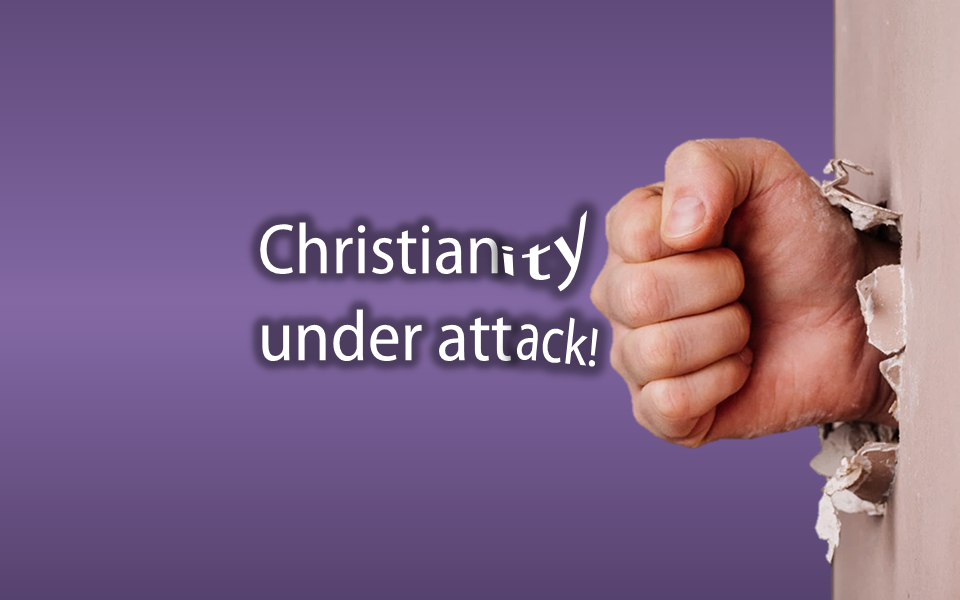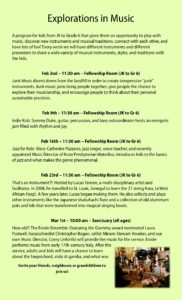Hespeler, 16 February, 2020 © Scott McAndless
Deuteronomy 30:15-20, Psalm 119:1-8, 1 Corinthians 3:1-9, Matthew 5:21-37

How would you recognize an immature Christian – someone who was just starting out in their walk of following in the way of Jesus Christ? I’ll bet if you surveyed your average group of Christians, you would probably find a great variety of answers. Say you went to a fairly normal congregation like this one and asked people, confidentially of course, who they felt were the most mature Christians among them, they might say something like, “Well, brother Bob over there has taken many courses in theology and Bible study and he probably understands more about God than just about anyone. He is a very mature Christian.” And then someone else might say, “But look at sister Susan over there, she has served as an elder for so many years she has chaired many committees and even headed up that big building project. Now there’s a mature Christian for you.” Or someone else might point out brother Phil, who can pray like nobody’s business, or maybe sister Catherine who has taught generations of students in that Sunday school room.
Those are the kinds of things that we look at. We look at education, leadership, ability and service. We look at what people have accomplished and sometimes just it how long they’ve been around to judge whether or not they are mature in how they live out the Christian faith. And, I’ll be honest, that is generally how I think about it too. And I will say that I have certainly been blessed, down through the years, to have known many mature Christians according to those criteria. That is why I was kind of shocked when I realized what it was that the Apostle Paul was saying in our reading this morning from his letter to the Corinthians.
Paul speaks to the Christians in Corinth and sadly tells them that he can’t treat them as mature Christians. In fact, he says that they aren’t just immature, they are babies. He has to feed them milk, he says, and not solid food. Paul is speaking here as if he were a nursing mother with a little baby. Nobody knows for sure how long mothers nursed their children in the ancient world. There are some indications that they may have nursed them until they were at least three or four years old! But they still must have introduced solid foods well before that age. Perhaps they exclusively fed their children on milk for about the same period of time that modern mothers are recommended to do so by the experts today: about six months
So what Paul is implying to the Corinthians is not merely that they are immature. He’s suggesting that they are little more than newborn infants. He’s actually casting himself as a nursing mother with a baby who cannot even handle pablum. But what is really surprising is how it is that Paul knows that they are immature because he doesn’t look at any of the things that we would look at. He doesn’t look at education or experience or service or ability or any of that stuff. There is only one indication that matters to him. “For as long as there is jealousy and quarreling among you, are you not of the flesh, and behaving according to human inclinations?” The fact that they are quarreling with each other is all Paul needs to look at to know that they are spiritual infants.
What would it be like if we in the church today had the same understanding of spiritual maturity as Paul? Because I’ll tell you that we don’t tend to think that way at all. We often go to the other extreme. What do you do, for example, if you have a person in your congregation who is, let’s say, really forceful when it comes to getting their point of view across, who has this way of making sure that everybody goes along with their plans? What do we do? Well, we usually let them do whatever they want because we are scared of how they might react if we don’t. We also tend to look at them and say, “Wow, there’s a leader for you; there’s somebody who knows how to get things done.” And so we advance them into leadership or put them in charge of some project.
And then, before too long, you find yourself in a position where almost all of your leadership team is made up of exactly that type of person and if you don’t watch out you soon have them butting heads with one another because, I’ll tell you, none of them are about to back down on anything. We behave as if these people are the spiritually mature, responsible leaders and not the spiritual babies that Paul would have seen. We act as if quarrelling and fighting are an essential part of being the church and even reward the behaviour.
And I know that we often excuse it. We say that people are not really fighting because it isn’t physical. We call it being passionate or forceful and often even push the blame onto those who complain or feel hurt by the process – tell them that it is their fault because they are being too sensitive. You know, maybe we ought to check with Jesus before we say things like that.
Jesus said, “You have heard that it was said to those of ancient times, ‘You shall not murder’; and ‘whoever murders shall be liable to judgment,’” and we agree. We think, that because people aren’t murdering each other everything’s fine. We’d go even further and say that so long as nobody’s having fist fights in the parking lot or keying people’s cars, we must be all good. But here’s the thing. Jesus said that in order to reject it and say that it wasn’t good enough. He said it in order to say, “but I say unto you…”
Jesus is giving us, in this short passage from the Sermon on the Mount, some instructions on becoming the kind of mature Christians that Paul was looking for but didn’t find in Corinth – the kind of Christian who doesn’t give into quarrelling and fighting. And this first instruction is key. He says that it’s not just about not murdering each other. It’s not just about avoiding actual physical violence. We need to look at deeper questions about how we treat each other, how we speak to each other and how we behave. Words can hurt just as surely as blows can. Raised voices and aggressive movement can frighten and even terrify.
And I know that some people might find that to be too much to ask. How can we censor our every word and movement all the time? It is a lot to ask and I know that it is something that we will all fall short of at least from time to time. I fall short often enough. But Jesus never said it was supposed to be easy. He demanded more of his followers and it is the kind of maturity that we may sometimes fail to achieve but that we must always aspire to.
But that is just one part of the advice that Jesus gives to us as he encourages us to maturity. He also teaches us to, “Come to terms quickly,” when we are faced with such strife. That is (I suspect Paul would agree) what a mature Christian should do rather than quarrel and fight. Now, coming to terms is something that takes some work, it takes some communication and in some cases it might take some mediation. It might even take some give-and-take or what you call negotiation. Sometimes it’s really hard and sometimes it is nigh impossible, but coming to terms is something that we can all work towards together.
But I’ll tell you something that coming to terms isn’t; it isn’t what we often do. What do you do, for example, when you find yourself in a situation, whether in the church or someplace else in life, and somebody begins to act inappropriately with someone else – insulting them, making fun of them or maybe speaking in inappropriate racial or sexual ways? I know how people often react and I’ve done it, sadly enough, myself. People withdraw, look down as if they had suddenly become very interested in their shoes. And I understand why we do that, we are afraid to speak up, afraid of the discomfort of it or that maybe the person who is misbehaving will turn his or her attack on us. We hope that maybe, if nobody says anything, it’ll just be over and we can pretend that it never happened. And, indeed, that is exactly what we sometimes do afterwards as well. But let me ask you, is that kind of response what Jesus was thinking of when he said that we should “Come to terms?” No, he was not.
But, of course, that is just one way that we deal with the discord that sometimes arises among us. Sometimes, when somebody has hurt you in some way, maybe even without realizing that they have done it, you might respond by withdrawing from that person, becoming cold and even hostile in your reactions to them. I get that reaction. It can really feel so good, you almost feel as if you are getting back at them by doing it. But, let me ask you, do you think that that’s what Jesus was talking about when he said “Come to terms”? No, it was not.
Okay then, how about, “agreeing to disagree”? Is that what Jesus was talking about when he spoke about “coming to terms”? Sometimes, I will admit, that is a position that we’re going to have to take. The simple reality is very clearly that we are not always going to agree about everything. There is no escaping that. But sometimes I feel as if we can say that in a rather cynical way, as if we are grudgingly giving someone permission to be wrong from our point of view and somehow I really don’t feel that that’s what Jesus was getting at when he spoke of “coming to terms.” Surely there are ways to say that and to truly respect and honour that person who holds a different point of view, to be willing to learn from them even if, in the end, you don’t agree. I think that could be close to what Jesus was talking about when he said, “come to terms.”
But most of all, what I think Jesus was saying was that we need to truly love one another. And if you truly love one another and you run into one of those inevitable patches when you see something differently or are hurt by something that somebody does either intentionally or unintentionally, then you are going to put in the effort and the time to actually communicate what you feel and what you need. You will put in the time and effort you need to understand where somebody is coming from and why they might be feeling the way they are (which, I have found, often has little to do with the disagreement at hand but with something deeper that might be going on in their life).
It also means you are going to be willing to tell somebody the hard truth, like how they might have hurt others with their behaviour. That is a hard thing for anyone to hear, but when it comes from a place of love, it can be a transformative moment. I think that that might just be a piece of what Jesus was getting at when he told us that we should come to terms.
Is any of that easy? Of course it isn’t. Is any of us going to be able to do that all the time? Of course not. We will all fall short at least from time to time. But, as Paul makes very clear, our failures to do this do not mean that we are not followers of Christ or that we have no place in the kingdom of heaven. It means that we are immature Christians who can’t quite handle solid food. But full maturity is what we should all desire. It is what Christ has called us to. So let us all put in the work to get there.




